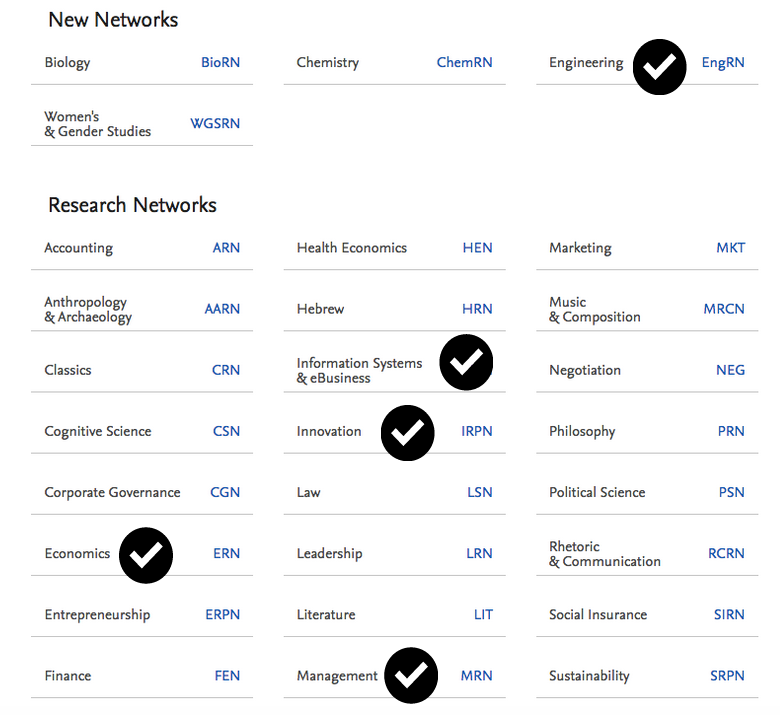NGI FORWARD
archive 2020
 Developing a cutting-edge data-driven methodology for identifying early signals of new trends & technologies. |
 Mapping the ecosystems & networks surrounding these key topics, evaluating their social, legal, technological, ethical & economic contexts. |
 Creating a value-driven vision for what the future internet could and should look like, involving a wide variety of voices across Europe. |
Methodology
Unique terms: 0+
Media articles:
0
Scientific articles:
0
Analysis period: four years plus six months (covid)
Trend analysis
- Analysis based on the frequency of terms (unigrams and bigrams) in the texts
- Average monthly change in the analysed term's frequency is calculated by OLS regressions
- Qualitative analysis of the top 1000 trending terms
Co-occurrence analysis
- Exploring the relationship between topics
- E.g. which trending terms are mentioned together with the term “fake news”
- The number of articles containing both terms is divided by the number of articles including the main term of analysis (e.g. "fake news")
Sentiment analysis
- VADER, an open-source lexicon and rule-based sentiment analysis tool
- Sentiment score: between -1 (extremely negative) and 1 (extremely positive)
- Calculated for paragraphs containing analysed terms
- Track changes in sentiment over time
- Identify most positive and negative co-occurring terms
Topic modelling
- Each article is a mixture of topics, and each topic is a collection of characteristic terms
- Latent Dirichlet Allocation: a popular method to discover the topics and terms
- Unsupervised machine learning: it is enough to specify some parameters (e.g. the number of topics) to receive results
Issue mapping
- Articles are categorised across two dimensions: geography (EU vs US) and covered topic (social vs technological)
- Words are ranked based on their frequency in articles classified as social and non-social (technological)
Main Programming Tools
Topic identification
most trending NGI related keywords are identified
Grouped into wider areas
The size of the bubble is based on the regression coefficient
Bigger bubble: more robust trend
100 most trending terms over the full analysed period: are they trending also over shorter timespans?
Umbrella topics
Based on the trending terms, we identified 8 key NGI topics
Hover on a topic to show keywords and a short description
 Trustworthy
Trustworthyinformation
 Blockchain &
Blockchain &crypto
 Online
Onlineprivacy
 Sustainability &
Sustainability &climate crisis

Trustworthy information
The spread of fake news, misinformation and the decline of trust in reliable sources create a profound challenge for the functioning of democracies and societies. While regulating platforms or implementing advanced topic filtering algorithms are among possible solutions, bringing back trust to written words may be far more complicated.

Blockchain & crypto
Blockchain has been long regarded as a transformative technology with large disruptive potential. Blockchain technologies may play a central role in the future of social media, financial services and in other intermediation services. As of today, the most widespread implementation of blockchain is related to cryptocurrencies. As an emerging technology, blockchain raises pressing regulatory issues.

Online privacy
Much has changed for online privacy in recent years. GDPR was a landmark for personal data protection in the EU and beyond, and the debate is now largely about how to regulate online platforms, not whether regulation is required. However, online privacy is not only threatened by the business models of tech giants, but also by applications like Pegasus and other non-transparent practices of foreign and national agencies.

Sustainability & climate crisis
Climate change remains humanity’s top challenge, with great impact on technological and social development. Besides already available consumer products, emerging technologies such as AI and quantum computing may play a significant role in reducing the harmful effects of global warming. However, the content crisis on social media divides society by popularising fake news. Therefore, Internet services play a greater role in the fight against climate change that is beyond the carbon footprint of using them. Reducing the spread of fake news and propaganda will be key to build a global consensus in the necessity to take more significant steps.

Safer online environments
Cyberviolence in many shapes and forms is a growing concern, and it has a significant impact on an increasing number of people, LGBTQ+, ethnic minorities, women and children in particular. It will be vital for a more human-centric Internet to build safe online environments. For this to happen, a range of issues needs to be taken into consideration, including the role of social media providers and the protection of free expression. Big tech increasingly uses algorithms to combat the spread of discrimination, hate speech, online extremism and child exploitation. In the 2019 alone, Facebook claims to have flagged almost 20M hate speech posts using AI systems before they were reported by users. However, the efficiency of such solutions remains questionable.

Democracy
The state of public debate is heavily influenced by social media, the spread of fake news and conspiracy theories. Since the Russian interference scandal in the US elections, and the Cambridge Analytica campaign during the Brexit referendum, there are increasing warning signs that elections can be manipulated through social media.

Market competition
The digital transformation has a profound impact on the economy. Platformisation changed the market dynamics, facilitating the development of giant companies. Competition policy became highly relevant not only in the case of existing services (e.g. social media), but also for emerging technologies, such as cryptocurrencies or 5G. While the US has been less active in regulating market competition, e.g. in the case of Facebook acquisition of rival Instagram and Whatsapp, the EU is leading the discussion on ensuring competition in the Digital Single Market.

Ethical AI
The fast development of artificial intelligence algorithms and their increased use in facial recognition and autonomous weapons are among the most important identified trends. The use of facial recognition by companies, governments, law enforcement and the military has been in the centre of heated debates. Recent examples, such as Google's censored search engine developed for the Chinese market ('Project Dragonfly'), instances of algorithmic bias in criminal cases, racially targeted ads and “differential” pricing, and the use of Facebook data for voter manipulation, all raise serious concerns. Further research is needed in order to develop targeted ethical frameworks for the development and implementation of new technologies.
 Safer online
Safer onlineenvironments
 Democracy
Democracy Market
Marketcompetition
 Ethical
EthicalAI
Co-occurrences
The goal is to explore the relationship between trending terms
The figures reveal which terms were mentioned frequently in the same article
Trustworthy information
Blockchain & crypto
Online privacy
Sustainability & climate crisis
Safer online environments
Democracy
Market competition
Ethical AI
Sentiments
Aim: to track the public perception of issues and identify the positive and negative news stories related to the analysed terms
Sentiment score: between -1 (extremely negative) and 1 (extremely positive) calculated for paragraphs containing analysed terms
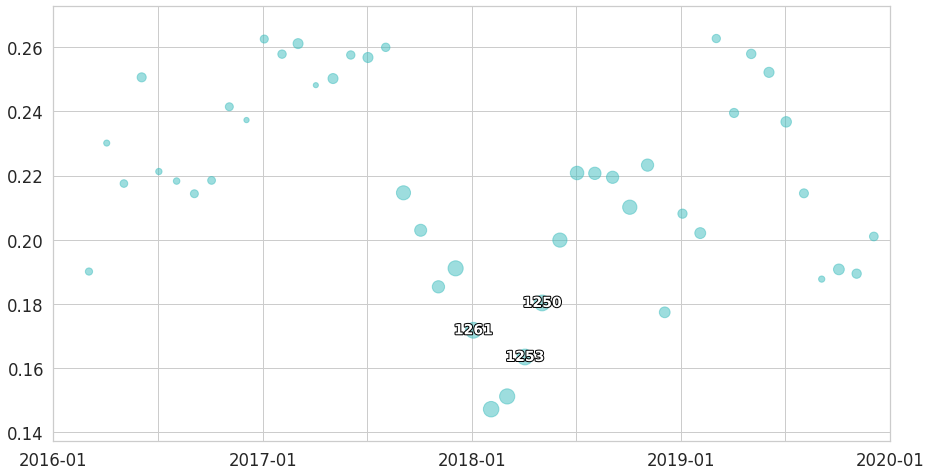
blockchain technology
| Most positive | Most negative |
|---|---|
| hyperledger fabric | venezuela |
| supply chain | shutdown |
| decentralised | ecb |
| consent | protest |
| digital identity | sanctions |

libra
| Most positive | Most negative |
|---|---|
| coinbase | political ads |
| fiat currency | political parties |
| stablecoins | misinformation |
| calibra | president donald |
| central bankers | ftc |
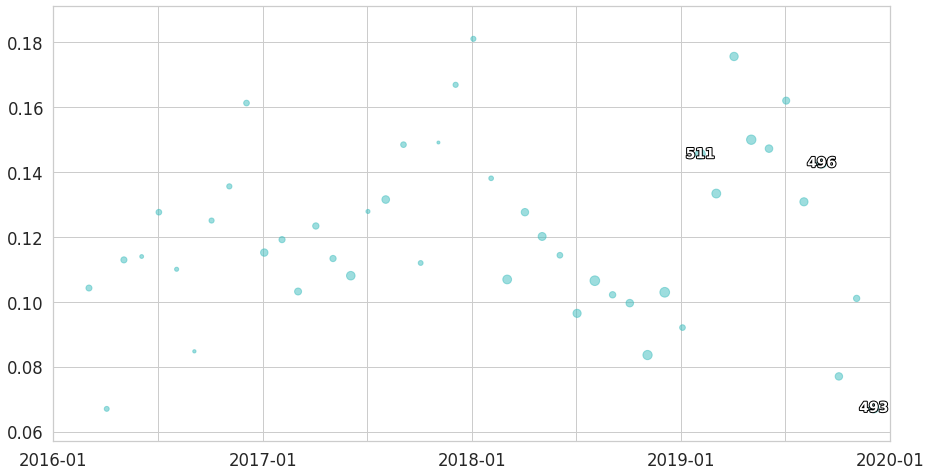
greenhouse gas
| Most positive | Most negative |
|---|---|
| heat pumps | geoengineering |
| autonomy | climate emergency |
| plantbased | extinction |
| solar wind | protest |
| electric vehicles | democracy |
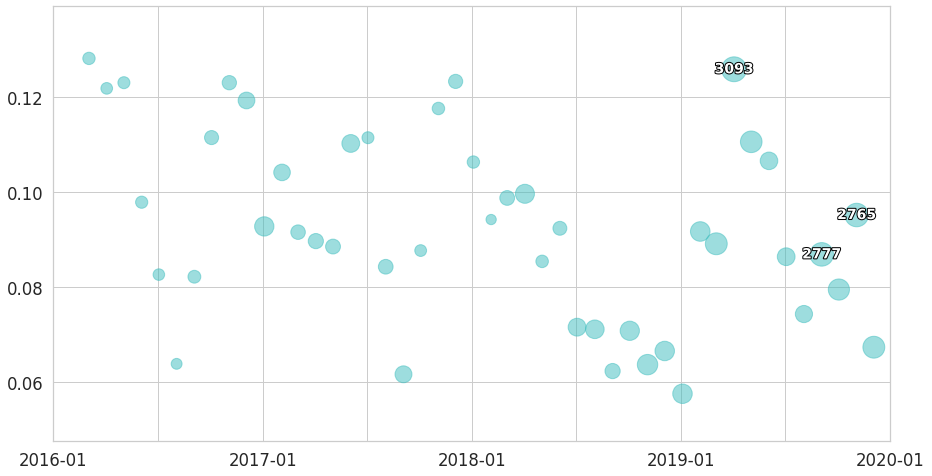
climate change
| Most positive | Most negative |
|---|---|
| electric vehicles | deep fakes |
| ai | conspiracy |
| bezos | wildfires |
| qubits | vaccine |
| supply chain | heatwave |
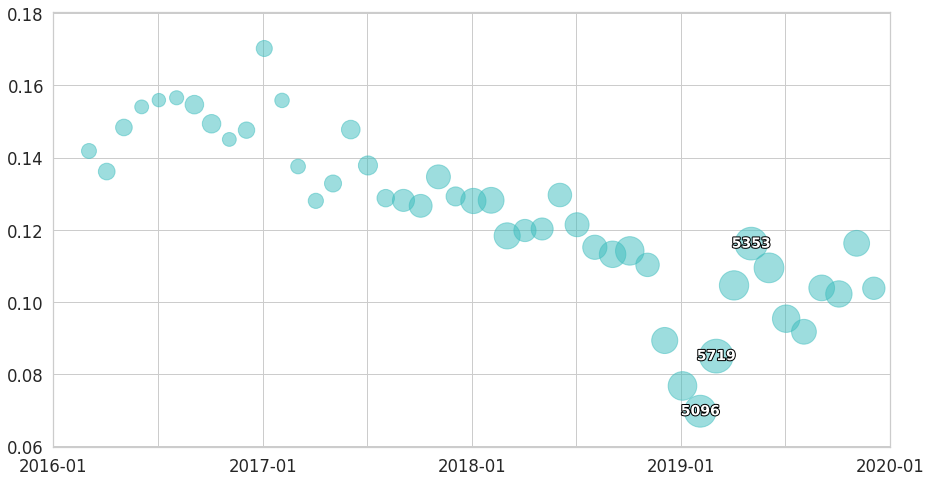
tech giants
| Most positive | Most negative |
|---|---|
| ikea | infowars |
| sonos | conspiracy |
| qubits | tvcs |
| smart speaker | content moderation |
| decentralised | political ads |
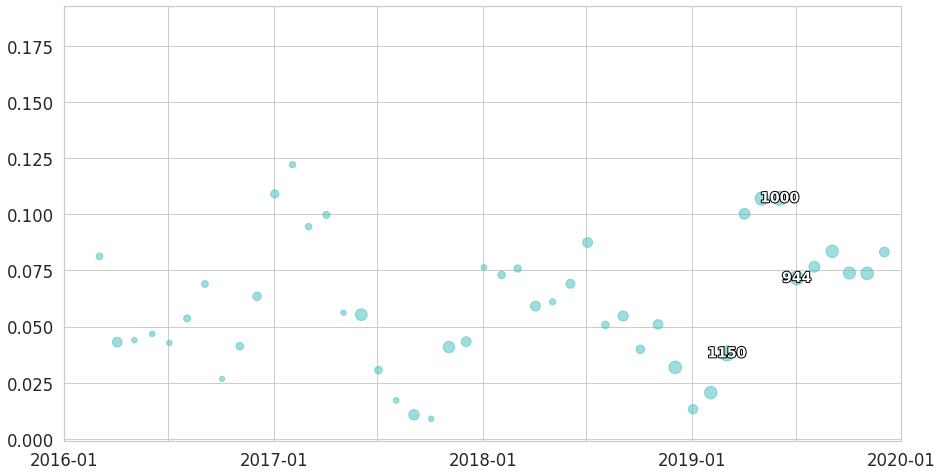
anticompetitive
| Most positive | Most negative |
|---|---|
| libra association | modem chips |
| duckduckgo | discriminatory |
| cryptocurrency | €2.4bn |
| section 230 | protest |
| fortnite | clegg |
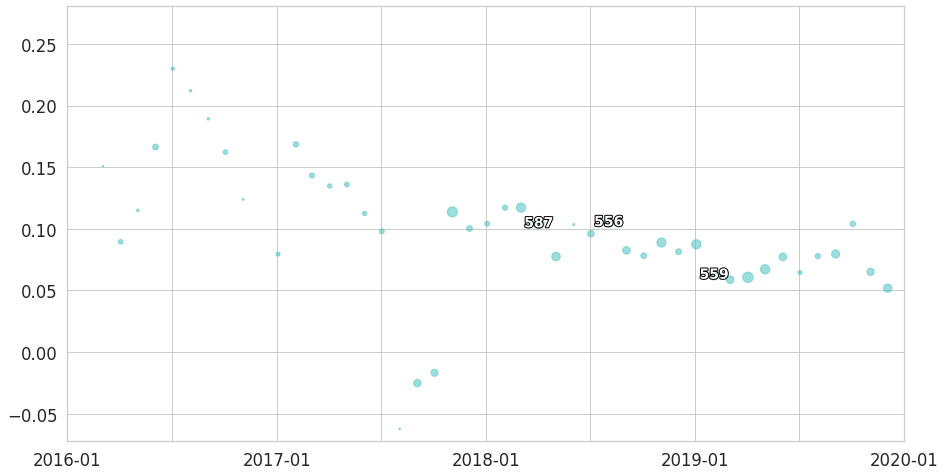
selfregulation
| Most positive | Most negative |
|---|---|
| blockchainbased | christchurch |
| 5g | deepfakes |
| gdpr | juul |
| facial recognition | terrorist content |
| tiktok | surveillance capitalism |
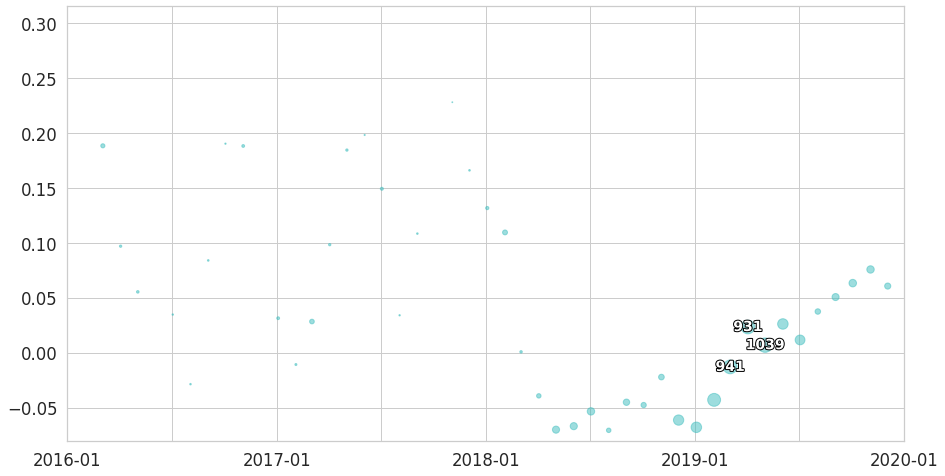
chinese telecoms
| Most positive | Most negative |
|---|---|
| strayer | huawei cfo |
| gavin | us sanctions |
| 5g deployment | skycom |
| ban huawei | extradition |
| blanket ban | iran |
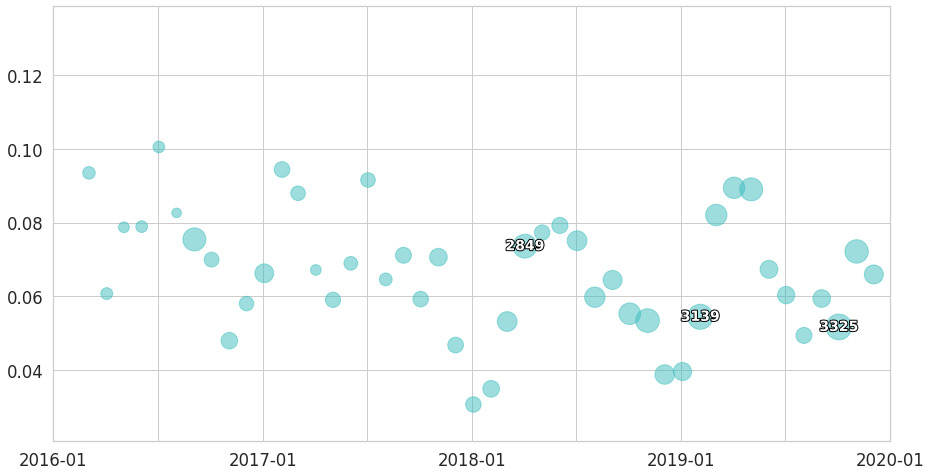
democracy
| Most positive | Most negative |
|---|---|
| climate change | myanmar |
| migration | farright |
| bernerslee | free expression |
| gdpr | conspiracy theories |
| big tech | chinese government |
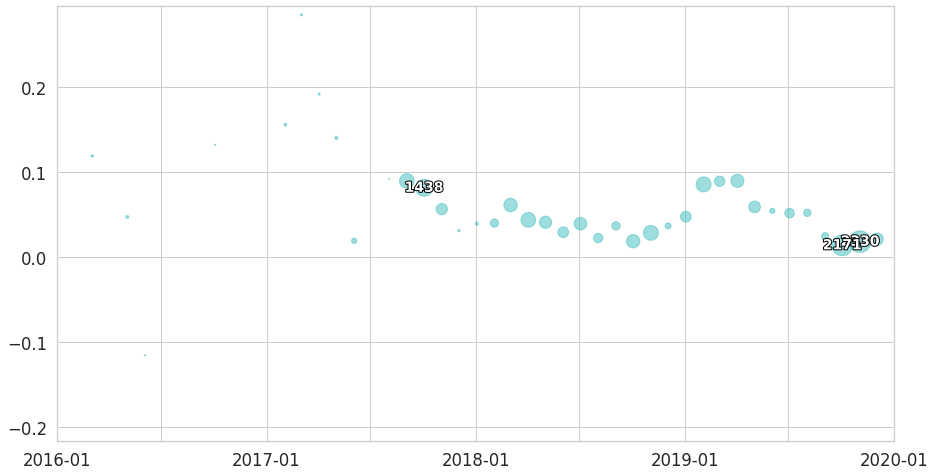
political ads
| Most positive | Most negative |
|---|---|
| media literacy | aiq |
| factual information | authoritarian regimes |
| coordinated disinformation | conspiracy theories |
| democratic process | lgbtq |
| election interference | mueller |
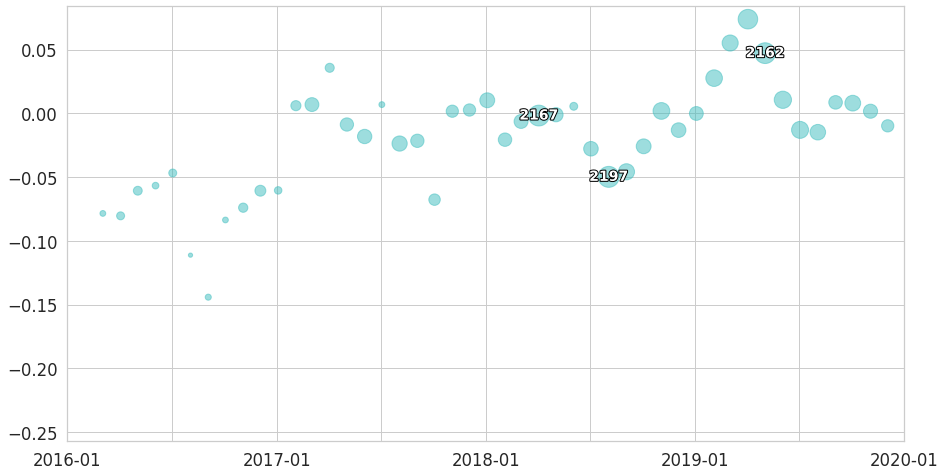
hate speech
| Most positive | Most negative |
|---|---|
| jonathan zittrain | maza |
| gdpr | homophobic |
| bernerslee | robinson |
| consent | rohingya |
| factchecking | 8chan |
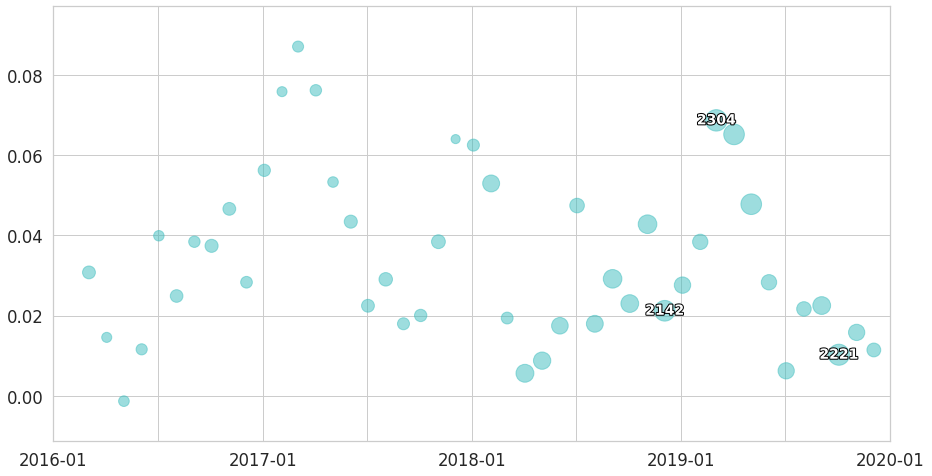
human rights
| Most positive | Most negative |
|---|---|
| yuval noah | weapons systems |
| supply chain | rohingya |
| gdpr | nso group |
| 5g | pegasus |
| tech giants | khashoggi |
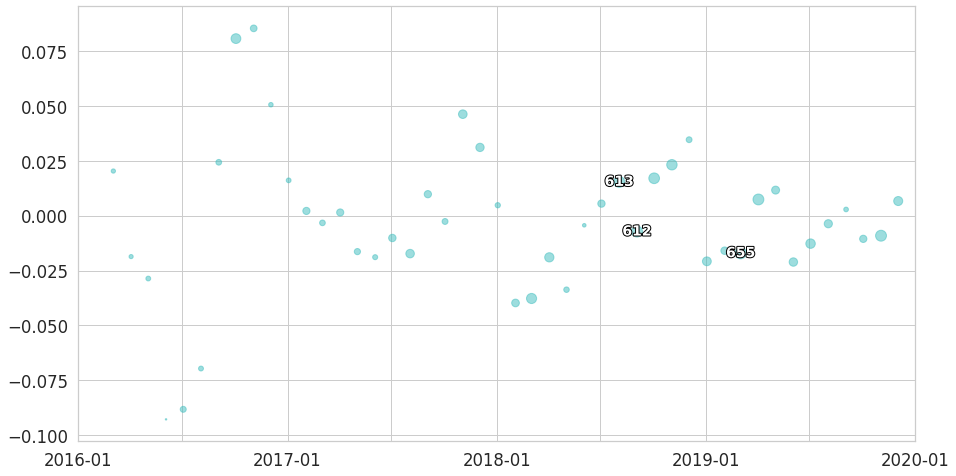
discriminatory
| Most positive | Most negative |
|---|---|
| finance minister | misconduct |
| le maire | antifascist |
| pelosi | racial profiling |
| avaaz | deepfakes |
| propublica | infowars |
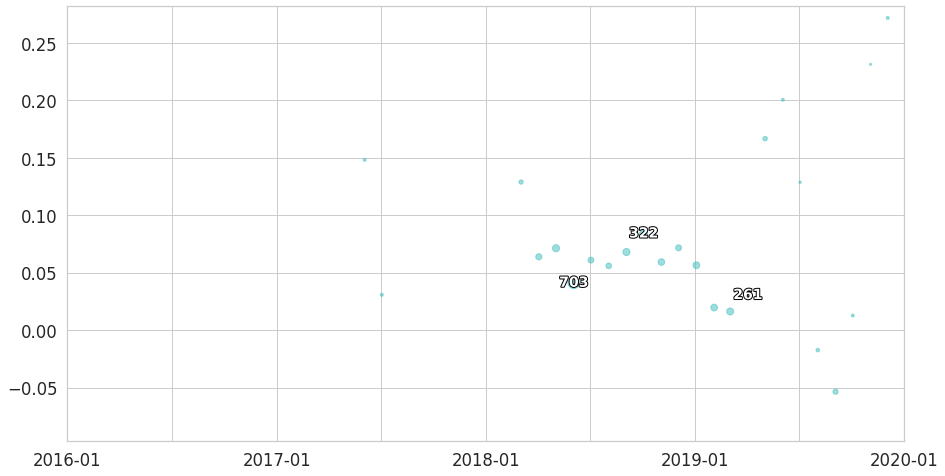
project maven
| Most positive | Most negative |
|---|---|
| openai | lethal autonomous |
| democracy | weapons systems |
| defense infrastructure | human oversight |
| dod | ban |
| jedi contract | amazon rekognition |
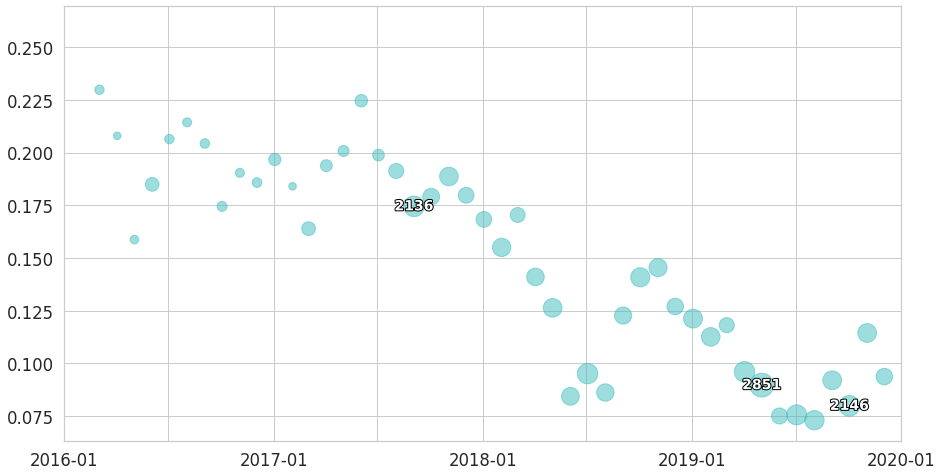
facial recognition
| Most positive | Most negative |
|---|---|
| byton | afr |
| thinkpad | uighurs |
| voice assistant | metropolitan police |
| zoom | cardiff |
| ml | hikvision |

faceapp
| Most positive | Most negative |
|---|---|
| ai | goncharov |
| facial recognition | bias |
| ethics | tiktok |
| ftc | chinese |
| consent | ban |

gdpr
| Most positive | Most negative |
|---|---|
| ccpa | whois |
| voice assistant | marriott |
| face recognition | tiktok |
| data portability | disinformation |
| mozilla | irish data |
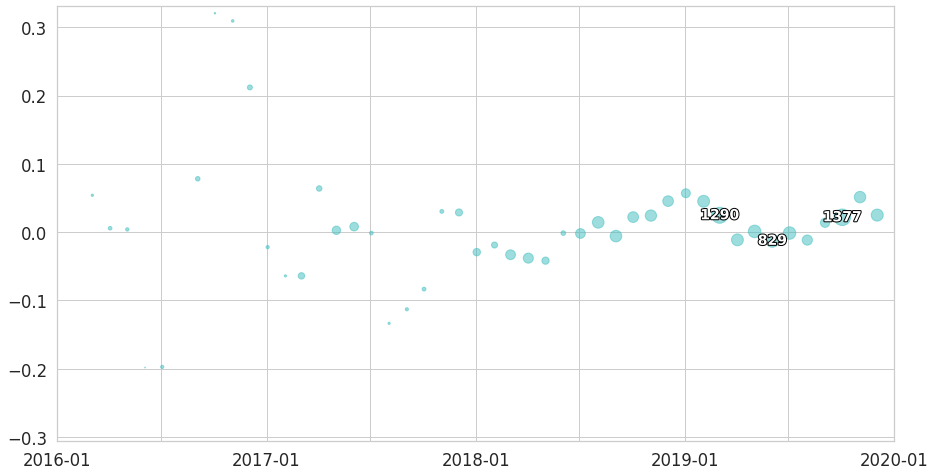
content moderation
| Most positive | Most negative |
|---|---|
| trustworthy | nationalist |
| recognition | graphic violence |
| gdpr | hateful content |
| midterm elections | selfharm |
| warren | antisemitic |
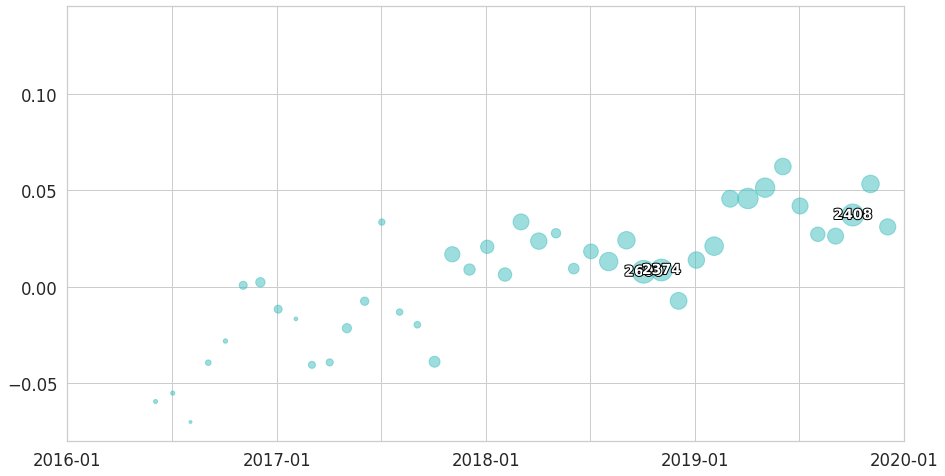
disinformation
| Most positive | Most negative |
|---|---|
| cryptocurrency | espionage |
| european elections | infowars |
| 5g | alex jones |
| libra | president trump |
| gdpr | conspiracy theories |
